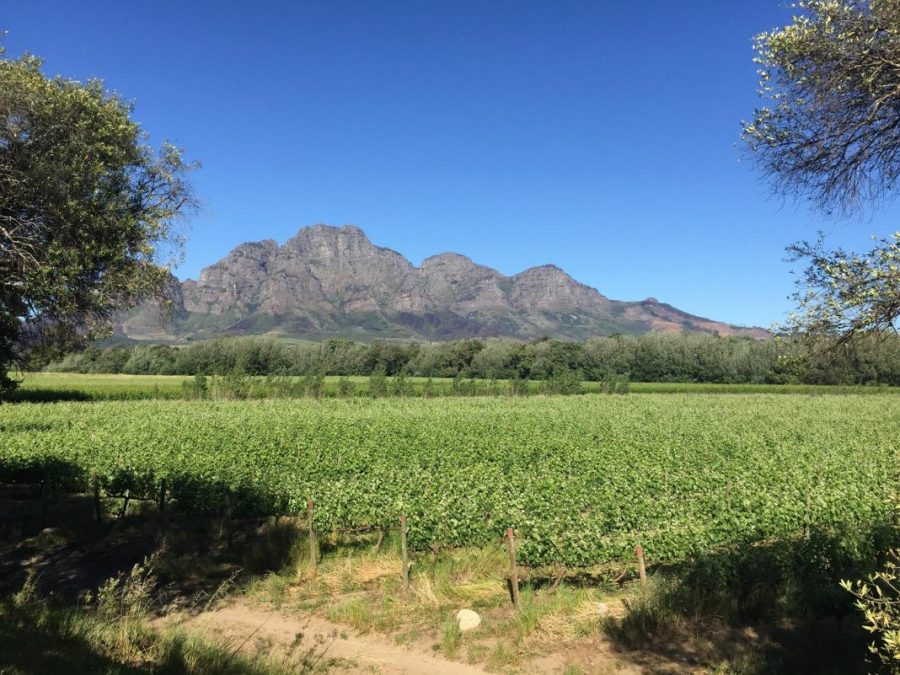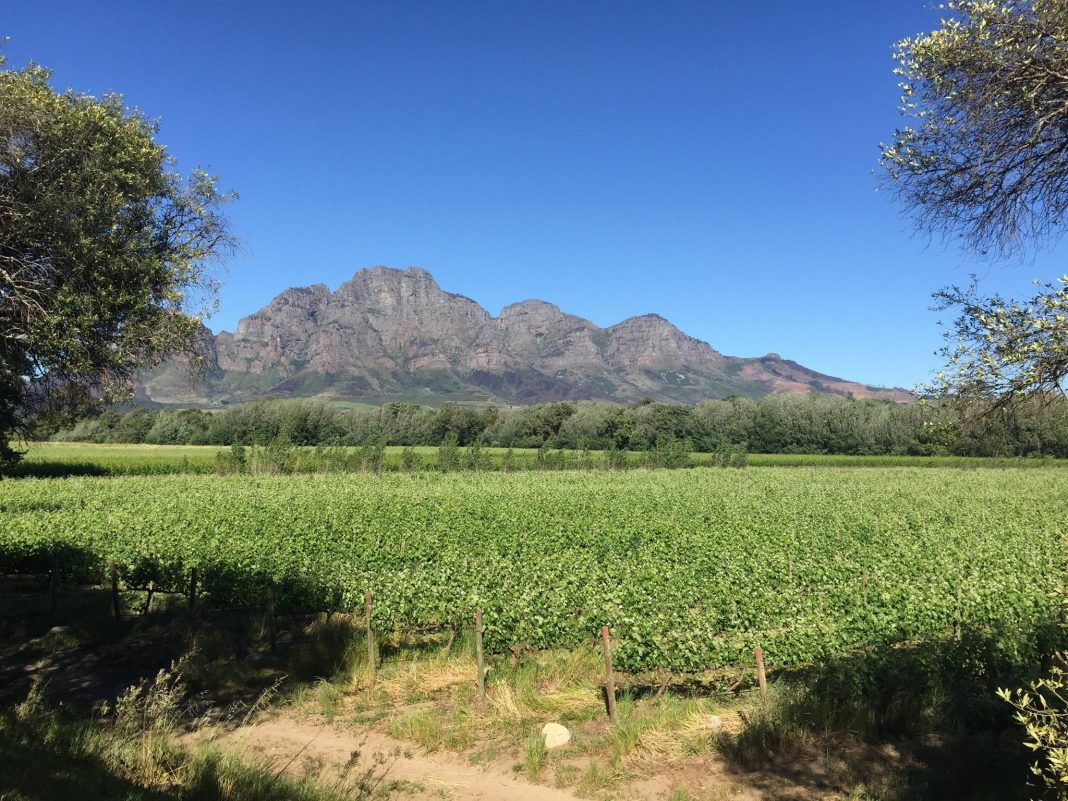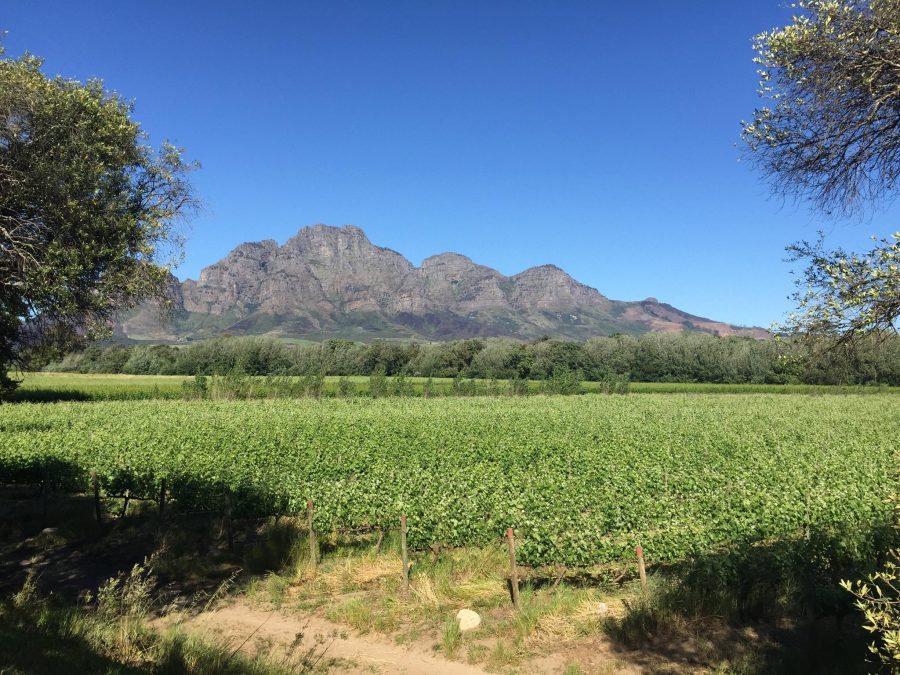
Winds of Change Sweep Over South African Farms
CAPE TOWN – “Dit is lekker op die plaas” is what Solms-Delta Wine Estate co-owner Professor Mark Solms said when Rural Development and Land Reform Minister Gugile Nkwinti launched the Strengthening the Relative Rights of People Working the Land policy (50/50) at the farm on Saturday. As most South Africans know, “Dit is lekker op die plaas” […]

CAPE TOWN – “Dit is lekker op die plaas” is what Solms-Delta Wine Estate co-owner Professor Mark Solms said when Rural Development and Land Reform Minister Gugile Nkwinti launched the Strengthening the Relative Rights of People Working the Land policy (50/50) at the farm on Saturday.

As most South Africans know, “Dit is lekker op die plaas” is an Afrikaans phrase that means “it is nice on the farm”.
Solms was describing how life has been on the farm after the farm owners decided to give half of their business to the farm workers. He said the model can be easily duplicated on all South African farms.
The Solms-Delta Wine Estate, established in 1690, sold a stake of its equity to farm workers under the Wijn De Caab Trust – effectively turning workers into their business partners.
“I am very proud to say that they can look at our example and see that it’s not [a bad thing]. This [farm] is a wonderful place… It is a very good community,” said Solms.
The Solms-Delta Wine Estate operates a wine production business in the Franschhoek area, outside Cape Town, on a property measuring 54 hectares.
Minister Nkwinti commended the established wine farmers – Professor Solms and Richard Astor (for Lubeck-Delta Ltd) – for pioneering the 50/50 policy before it was implemented.
“I think Professor Solms is one the most unselfish South Africans because we did not know about [his farm]. He heard about the programme that we developed.
“…People are celebrating 20 years of the Constitution. We are here celebrating exactly the same thing but substantively. I am very happy,” he said.
Solms said after taking over the wine estate in 2001, he started conceptualising a model through which farm workers could own a stake in the entire farm operation and the land.
“Prior to the Minister announcing the [50/50] policy, we had already made the decision that we wanted to share in the ownership with Solms-Delta.
“So when the Minister announced this partnership, at that point we already had a three-way ownership partnership between myself and the neighbouring farm and the farm workers who lived on both of our farms.
“Roughly around 180 people formed a trust and we share equally on the farm,” Solms said.
Through the policy framework on Strengthening the Relative Rights of People Working the Land – commonly known as the 50/50 policy – government seeks to assist beneficiaries – mainly farm workers and farm dwellers – to secure permanent tenure on the properties where they work or live, as well as acquire economic interests in agricultural land and businesses on which they are working or living.
Professor Solms said it was important to address South Africa’s painful past of land dispossessions and forced removals through this policy.
“We have to find some sort of compromise between everybody’s interests. There has to be something in it for everyone. I think the 50/50 policy is the obvious way to go. We share in the land and we work together in partnership in order to transform the agricultural landscape in South Africa.”
Giving workers a meaningful role
Sussana Malgas, one of the beneficiaries and board trustees of the Wijn De Caab Trust, said as a result of the transaction, life on the farm has greatly improved, as workers now have a say in the affairs of the farm.
After working as a domestic worker for Professor Solms, she has now been empowered and is a qualified wine and heritage guide.
She said the trust does a lot of community development work, including teaching music to farm workers, who have gone on to win music competitions and get local singing gigs.
Malgas said the trust now pays for the education of the children of farm workers.
“The first and most important thing for us is education because back in the day, we as beneficiaries did not have enough money to send our kids to university after they finished school…
“For us, it is very important because we don’t want our kids to be like us when we were growing up,” she said. – SAnews.gov.za
Solms-Delta co-owner Mark #Solms takes Minister #Nkwinti on a tour of the Museum Van De Caab, which tells the history of Delta Farm #5050 pic.twitter.com/WFyLF4PQ5x
— @SAgovnews (@SAgovnews) December 10, 2016